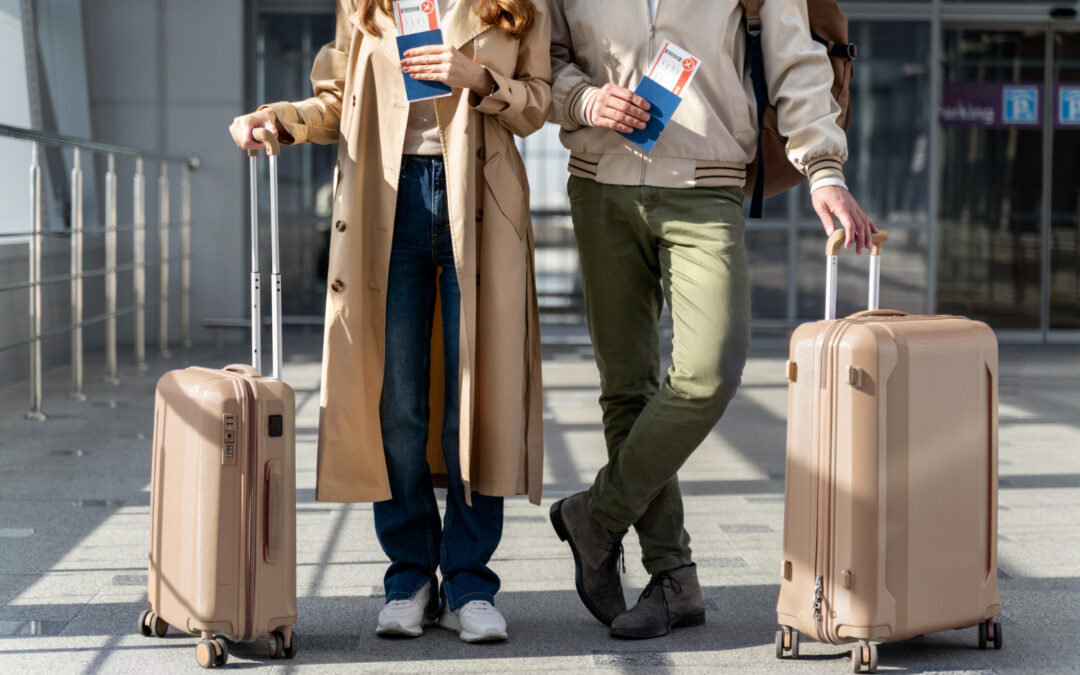With globalization and the rapid expansion of international travel, cross-border passenger movement has increased significantly, whether for tourism, business, education, or personal purposes. This growth brings into focus the regulation of passenger-carried goods, which must strike a balance between facilitating smooth travel and protecting Indonesia’s customs, fiscal, and economic interests.
Passenger-carried goods are categorized into personal belongings and imported items brought by passengers. To ensure legal clarity, the Ministry of Finance issued Regulation No. 34 of 2025 (PMK 34/2025) amending Regulation No. 203/PMK.04/2017 (PMK 203/2017) on the Export and Import of Goods Carried by Passengers and Crew Members. These rules provide a structured framework for customs processing and compliance.
Definition and Classification of Passenger-Carried Imported Goods
Under Article 7 paragraph 1 of PMK 203/2017, passenger-carried goods consist of personal belongings or personal use, which refers to : items used or worn for private purposes, and imported goods or non personal use, which refers to goods exceeding the scope of personal belongings.
Further, Article 7 paragraph 3 of PMK 203/2017 classifies imported goods as:
- Goods obtained outside the customs territory and not intended to be re-exported;
- Goods obtained within Indonesia’s customs territory;
- Goods obtained abroad but used domestically and later re-exported upon departure.
Duty-Free Allowance and Customs Duties
To simplify compliance, Article 12 paragraph 1 of PMK 34/2025 grants duty-free facilities for passenger-owned personal goods with a total value not exceeding FOB USD 500.
However, where the customs value exceeds this threshold:
- Article 24 paragraph 1 pint a of PMK 34/2025 imposes an import duty of 10% on the excess amount.
- Value-Added Tax (VAT) at 12% applies to the taxable amount.
- No income tax (PPh) is levied on personal belongings.
For non-personal goods, the following apply:
- VAT of 12%;
- Income Tax (PPh Article 22 on imports) of 5%.
This tiered system ensures fairness between passengers carrying genuine personal effects and those importing goods for other purposes.
Customs Declaration Procedures
Article 9 of PMK 34/2025 outlines the procedure for declaring imported passenger goods to customs officials at entry points:
- Oral Declaration
Reserved for specific groups, including passengers over 60 years old, persons with disabilities, registered Hajj pilgrims, state guests (VVIP), and other categories determined by the Director General of Customs.
- Written Declaration:
Passengers must complete a Customs Declaration Form (electronic or paper-based), disclosing personal belongings and imported goods exceeding the duty-free allowance.
This dual system accommodates vulnerable groups while maintaining robust oversight of high-value imports.
Also read: Excise Duties in Indonesia: Regulatory Framework and Implementation
Penalties for Non-Compliance with Customs Rules
Passengers failing to comply with customs reporting obligations face severe financial sanctions.
Under Article 25 paragraph 4)of Law No. 17 of 2006 on Customs, (amending Law No. 10 of 1995, violators must pay:
- Outstanding import duties, plus
- Administrative fines ranging from 100% to 500% of the payable import duty.
Dispute resolution is also regulated. Article 94 paragraph 1 of the Customs Law allows passengers who contest administrative fines to file a written objection with the Director General of Customs within 60 days of assessment, provided they furnish a guarantee equal to the imposed fine.
Also read: How to Export Indonesian Handicrafts: Legal Guide for Foreign Businesse
Balancing Traveler Convenience with National Interests
Indonesia’s customs regulations seek to balance traveler convenience with national economic protection. By allowing a USD 500 duty-free threshold, the government offers reasonable relief to ordinary passengers, while still safeguarding against potential misuse through undeclared imports.
For foreign travelers, expatriates, and international businesses, understanding these rules is crucial for compliance, cost planning, and avoiding penalties when entering Indonesia. Law firms and advisors specializing in customs, taxation, and trade law play an essential role in guiding passengers and corporations through Indonesia’s evolving regulatory framework. ***
Also read: Regulations on Import Duty Exemptions for Electric Vehicles
Regulations:
- Undang-Undang Nomor 17 Tahun 2006 tentang Perubahan atas Undang-Undang Nomor 10 Tahun 1995 tentang Kepabeanan (“UU Kepabeanan”).
- Peraturan Menteri Keuangan Nomor 203/PMK.04/2017 tentang Ketentuan Ekspor dan Impor Barang yang Dibawa Penumpang dan Awak Sarana Pengangkut (“PMK 203/PMK.04/2017”).
- Peraturan Menteri Keuangan Nomor 34 Tahun 2025 tentang Perubahan atas Peraturan Menteri Keuangan Nomor 203/PMK.04/2017 tentang Ketentuan Ekspor dan Impor Barang yang Dibawa oleh Penumpang dan Awak Sarana Pengangkut (“PMK 34/2025”).
References:
- Ketentuan Barang Bawaan Pribadi Penumpang dan Jasa Titipan (Jastip). Kementerian Keuangan. (Diakses pada tanggal 01 Agustus 2025 pukul 11.06 WIB).
- Pemerintah Sederhanakan Aturan Baru Kepabeanan Barang Bawaan Penumpang. Antara. (Diakses pada tanggal 01 Agustus 2025 pukul 11.17 WIB).
- Terbitnya PMK 34/2025 Wujudkan Simplikasi Aturan Barang Bawaan Penumpang. Beacukai. (Diakses pada tanggal 01 Agustus pukul 15.00 WIB).
